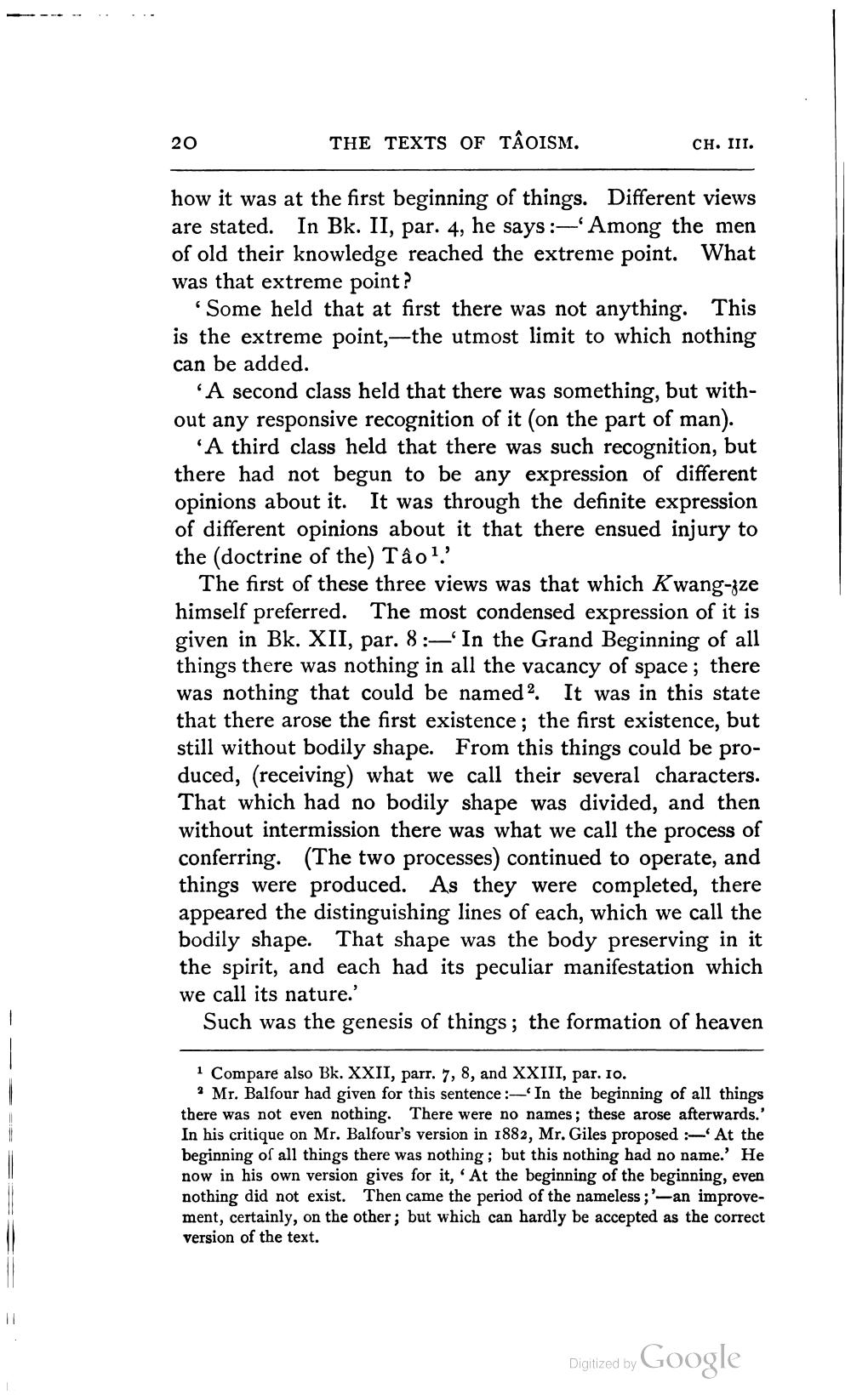________________
20
THE TEXTS OF TÂOISM.
CH. III.
how it was at the first beginning of things. Different views are stated. In Bk. II, par. 4, he says :-'Among the men of old their knowledge reached the extreme point. What was that extreme point?
Some held that at first there was not anything. This is the extreme point,—the utmost limit to which nothing can be added.
A second class held that there was something, but without any responsive recognition of it (on the part of man).
A third class held that there was such recognition, but there had not begun to be any expression of different opinions about it. It was through the definite expression of different opinions about it that there ensued injury to the (doctrine of the) Tâol.'
The first of these three views was that which Kwang-zze himself preferred. The most condensed expression of it is given in Bk. XII, par. 8:—In the Grand Beginning of all things there was nothing in all the vacancy of space; there was nothing that could be named 2. It was in this state that there arose the first existence; the first existence, but still without bodily shape. From this things could be produced, (receiving) what we call their several characters. That which had no bodily shape was divided, and then without intermission there was what we call the process of conferring. (The two processes) continued to operate, and things were produced. As they were completed, there appeared the distinguishing lines of each, which we call the bodily shape. That shape was the body preserving in it the spirit, and each had its peculiar manifestation which we call its nature.'
Such was the genesis of things; the formation of heaven
i Compare also Bk. XXII, parr. 7, 8, and XXIII, par. 1o.
? Mr. Balfour had given for this sentence:- In the beginning of all things there was not even nothing. There were no names; these arose afterwards.' In his critique on Mr. Balfour's version in 1882, Mr. Giles proposed : At the beginning of all things there was nothing; but this nothing had no name. He now in his own version gives for it, 'At the beginning of the beginning, even nothing did not exist. Then came the period of the nameless; '-an improvement, certainly, on the other; but which can hardly be accepted as the correct version of the text.
Digitized by Google




